Since its creation in 1905, the RFA has played a vital role in supporting the Royal Navy globally, a role that has adapted and changed over time to include support for allied countries.
Today, the RFA provides logistical support by various means and also undertakes tasks that traditionally might have been assigned to an OPV, frigate, or destroyer.
Very often overlooked by the public and politicians, the Royal Fleet Auxiliary provides critical logistical support to the Royal Navy and our allies, anywhere, anytime.
This article is the opinion of the author and not necessarily that of the UK Defence Journal. If you would like to submit your own article on this topic or any other, please see our submission guidelines.Â
Many Royal Navy deployments call for an RFA vessel to support them, either directly with fuel and stores or indirectly using landing ships.
Other tasks for the RFA see the ships operate alone and unsupported by the Royal Navy, sometimes due to a lack of numbers or because the tasking area is considered low threat.
One of the more common standalone tasks is humanitarian and disaster relief (HADR), many of which are undertaken by the RFA each year, given the variety of roles these ships can perform.
Today’s Issues: Ships and Crew
Ship numbers in both the RFA and Royal Navy have decreased significantly since the early 2000s. This means the RFA fleet has been filling in some capability gaps for the Royal Navy, even though the RFA itself has seen a drastic reduction in ship numbers (around 50% since 2003).
It should come as no surprise that ship reductions and increased tasking have had a major impact in terms of capability, availability, and overall morale in the service.
Many deployments have become longer, with the number of ships laid up due to a lack of crews also increasing. Ultimately, this becomes a cyclic event until, eventually, the whole system grinds to a halt.
This is where the RFA finds itself today—on strike. The ship reductions, coupled with longer sea time, reduced time alongside, and a pay freeze since 2010, have combined to create one of the most embarrassing sagas to date.
The RFA is losing crews, either to the Merchant Navy or to those leaving seafaring professions altogether. In addition, the number of recruits is down as many opt for other careers or shipping lines.
Why Does It Matter?
“Amateurs talk strategy, professionals talk logistics.†Without the RFA, the Royal Navy would not be able to function as a modern blue-water navy. What the RFA does is enable global operations to be sustained long term.
Time and again, government cuts frivolously discard this capability without considering the wider consequences. Oversimplifying the RFA as merely a provider of fuel and stores is erroneous. For example, the RFA currently has the only amphibious landing ships available for immediate use, as HMS Albion and HMS Bulwark have been laid up due to a lack of crew.
Other significant capabilities rest with the 43-year-old converted merchant ship, RFA Argus. She alone provides dedicated hospital facilities and is often the first responder to many crises worldwide.
One of the more worrying aspects of the RFA’s situation is the abolition of dry stores ships. RFA Fort Rosalie and RFA Fort Austin have been sold to Egypt, meaning the only ship left with limited dry stores capability is the elderly multirole RFA Fort Victoria, which is also laid up due to a lack of crew.
Without such vital ships and the crews to operate them, the entirety of UK foreign policy has to be called into question. Large-scale operations would simply struggle to maintain momentum over extended periods. This also raises concerns about the HADR missions the RFA routinely undertakes.
The future
With concerning global issues currently unfolding, the Royal Navy and RFA have been decimated. Both have lost ships and, more importantly, trained professional crews.
While the top brass try to put a brave face on the situation, it is clear to all that dissatisfaction within the service is widespread. While the public may not always understand the role the RFA and Royal Navy play, they should be concerned.
The loss of capabilities, trust, and confidence takes years to rebuild, and it affects our long-term relationships with allies. Someday soon, the proverbial will hit the fan, and someone will have to say, “I’m sorry, Prime Minister, due to cuts, we cannot complete this tasking.†If the current trajectory continues, that day may come sooner rather than later.



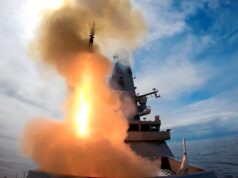
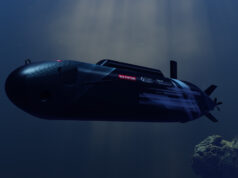
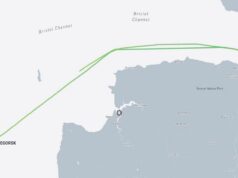
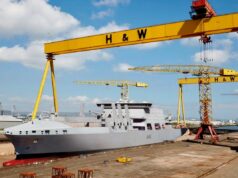
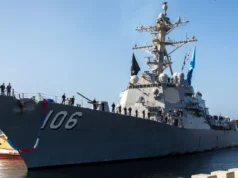
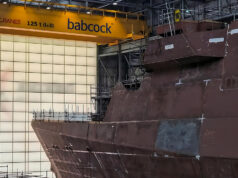
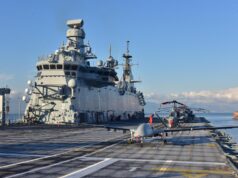
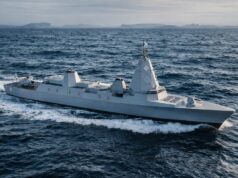
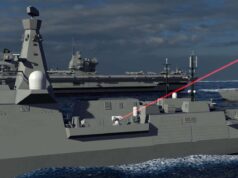
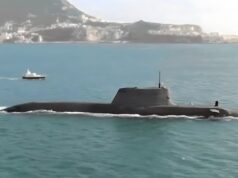

I’m confident the upcoming review will address these very concerning issues.😬
One can only assume the government’s primary goal here is the complete collapse of the RFA entirely. They have stripped, paired back, pontificated since the plans were laid down for the carriers. Arguments as to the ships classification and therefore whether they must be designed and built in the UK or not, all so they could withhold the funding. Couple all this with pay freezes and the slow steady decline in crew and hull numbers and it’s difficult to presume anything else as a goal. What I’d really like to know is, once it’s soo bad it’s ineffectual as an arm of the military, what is the governments plan for reshaping/replacing the service? Some sort of joint programme with Europe, the States?
Can our government agencies REALLY be this inept?? Feels like a let off to just role your eyes yet again and put all down to bad government planning…again…
Ten years ago I postured if I were an enemy and wanted to cripple the UK’s strike group capability I’d just blow a hole in Fort Victoria whilst she was laid up refuelling. Are we seriously excepting this is really just a case of incompetence and bad planning that we find ourselves in this situation?
Isn’t what the IRA actually did to her ?
Technically she wasn’t in service at that point, and at least the RFA had more hulls at that point.
They did and they failed to sink her
Can our government really be this inept? I have every confidence in my government.
May God preserve your sight.
You’ve got to be kidding right? Starmer and his government are clueless. He makes Sunak look competent – and that is saying something!
They used to call John Major the grey man of Europe – nope, that moniker seriously has to go to Starmer. There is absolutely nothing inspiring or endearing about the man. He’s bland, dull and uninteresting. Every week and month that goes by shows just how much he’s in over his head.
I seriously don’t see this government lasting 5yrs until the next election.
That is what worries me – he fronted for a load of Communists and Marxists plus, of course, the usual clues wonders.
Starmer hadn’t got a discernible policy framework and his communication skills make Rishi look like a genius.
I only hope that the investment fund actually invests in motorways, rail, warships etc and doesn’t just give the NHS another massive chunk of money to waste. The last thing that organisation needs is more money.
Hi SB,
Totally agree with you – especially when it comes to the NHS which is bleeding the country dry; it’s just an endless money pit. Billions and billions disappear down that hole never to be seen again.
The dire situation the RFA is now in is largely the fault of 14 years of Conservative stewardship.
It is a bit premature turning your ire on the new PM, he’s only just got his feet under the desk and we haven’t had a defence review yet.
Conservative and Reform voters really need to explain how the RFA was allowed to slide into such a sorry state, rather than trying to deflect the blame to the new Government.
No deflecting here – Sunak was a disaster for defence and so was Cameron before him. That said, Sunak did eventually commit – even begrudgingly I would say – to 2.5% by 2030 for defence. Starmer STILL will not commit to a date – why?
You’re right in saying the SDR hasn’t been published but it’s generally accepted by all that it will result in cuts. Making any cuts and not investing more in defence at a time when the world is in turmoil is unforgivable for any government – Conservative, Labour or otherwise.
Sunak committed to a date at which he knew he would not be in goverment even if he won the election. It is as useless and vague as Labour. If anything Labour is at least being more honest by not giving a date.
Reform voters don’t have to explain anything to you as they have never formed a government.
Well, they were about 90% Conservative voters for most of the previous 14 years, so are not entirely free of blame for their Conservative government’s running down and neglect of the armed forces in that time.
do you? really?
The current problem has its origins in the decisions of the 1998 defence review. This prioritized expeditionary capability and led to the QEs. Replacement LPDs had been ordered in 1996. But the additional funding was never made available. So QEs were delayed, further increasing the cost over the planned budget. Having found it impossible to cancel one aircraft carrier, the coalition made a number of cuts to other capabilities but WITHOUT a coherent review of what they implied for the overall role of the navy. Thus we are left with 2 carriers acquired to facilitate expeditionary capability but inadequate support vessels to sustain them in extended operations globally. Even though we have acquired 3 new oil tankers,( one currently in reserve, uncrewed) solid support is limited to Fort Victoria and whatever can be delivered by helicopter from the Tides. New FSS are not planned to reach FOC until 2032.
With vessels laid up because of manpower( both RN and RFA), remedying the shortages, so that the vessels we have can be deployed, has to be top priority.
The 2010 review cut Fort Victoria sister ship, RFA Fort George which was supposedly in better condition than Fort Victoria, but needed a refit. We also have two Wave class tankers laid up for lack of crews. and there are four Tide class tankers
I should have made clear that I meant 3 Tides available + 1 in reserve (along with 2 Wave also in reserve). We have enough oilers so the obvious remedy is to fix the manning crisis. For solid support, even though the contract has been awarded, the current situation at H+W isn’t likely to speed up delivery. And if we can’t solve the manpower issue, what is the point of building more ships that can’t be crewed?
If the Norwegian Maud, thats going to be in the CSG 25, and is similar to the Tides, can carry some solids/dry/DG can any of the RN Tides/Waves be upgraded as an interim to do the same? Particularly if the H&W situation causes delays. Considering the hundreds of millions that has likely been wasted or mismanaged over the years, what’s the fuss with £200 million? As for Ms Reeves coming up with now a £40bn from £22bn blackhole overnight, seriously, has she just created that increase, is it actually “real” or as an excuse to cut back on even more and then the government can target spend on particulars to look good?
The RFA will never recruit and train enough crew in time for Fleet Solid Support anyway.They have been in this current crisis for far too long and the first FSS crewing requirement is fast approaching in 2028. They will be delivered and at least one will be laid up (or sold). It won’t matter anyway as they won’t be able to operate organically anyway so won’t be ‘Global’.
Agree we are void for oilers but need more crews.
Selling the Bay looked stupid then and looks stupid now.
RFA manning is the must-have that way the number of fleet days increases by using good platforms that we have already invested in.
Let’s face it you could RFA the Albions too if you had the bodies. Although I appreciate that RFA don’t do C2 which is the Albion’s great strength!
Well given that there are soo many examples of this type of thing going on in the Ministry of Defense for decades now I can only but agree with you.
The ruling elite of the UK are beyond incompetent and have been for decades now.
Unless the electorate of the UK grow a back bone the country will continue this path of decline until chaos ensues and civilised society falls apart.
Exactly who in government is suffering from the intellectual deficit that they are unable to either recognise this as a problem or come up with it’s obvious solution?
Government knows very well what the issues are. Bottom line is there is no new money for defence. Can’t take from Health or Welfare as they are the vote makers or breakers (see winter fuel payment withdrawal as prime example).
If i was RN i would seriously be talking on social media about industrial action due to the fact that they cannot safely deploy without sovereign RFA support.
The Military Covenant has been well and truly broken.
Precisely. Not only do the “vote makers” take obvious priority, so too do any programs (foreign aid and “net zero” spending) regarded to be ideological priorities.
And one needs to be frank, the British people firmly voted for that in July. They voted for it primarily because they were sick of the Tories, but they voted for it nevertheless.
So one can expect the defence review to cut quite a bit in order to address the various funding gaps in MoD programs (and perhaps to increase pay in the armed forces and RFA) while covering those cuts with a lot of “leaner and meaner” and “new technologies” rhetoric.
There are many other places to take from, just do an Argentinian Milei in quangos,universities (which seem to be more interested in creating progressive hate), etc.
Hahahaha righttrash copium is delicious and a joy to behold 👌ðŸ¾ðŸ˜˜
Whining like babies about how everyone hates you is pretty much all you’re good at…🤡💩
Screwing down a cap on welfare, if clearly explained why, is a massive vote winner.
Pensioners don’t like people freeloading as don’t most tax payers!
Pensions are the biggest component of welfare queens. Boomers are becoming too expensive to keep, with their absurd health costs, council tax reductions, insisting someone else pays their gas bill etc. Time they pulled themselves up by their bootstraps as hardly any paid in enough to justify those gold plated, triple locked state handouts.
According to SIPRI figures British defense spending has increased by 55 percent in 7 years since 2016.
In that time 10,000s personnal have either been cut or left and platforms have been retired without replacement and everything else has been cut to the bone or given to Ukraine.
So I would argue that it’s not a case of more money but how is it being spent. How many 10s of billions is being clipped from the ticket by contractors and consultants that add nothing to the defence of the nation but our freinds are getting coin.
I live in New Zealand and the last government spend over 500k building a children’s playground on parliament grounds. When all was said and finished the result was a single tiny slide that actually only probably cost 2 or 3 grand to be built. Well over 200k was admitted by the government to being paid to consultants. As a side note the slide was torched by protestors a year later.
But the point remains, where is all the money going?
Look at what Elon Musk has been able to achieve with Space X compared to NASA when it comes to launching rockets into space with just a fraction of the money per launch.
If a small team that had no external influences could audit the ministry of defense properly then I’m sure alot could be achieved.
I don’t think the Point Class are crewed by RFA. Maybe the intention is that supply ships are contracted out and MRSS have RN crews. Bye bye RFA?
I suspect much the same, the RN taking over some assets and the rest privatised.
The inescapable fact is, the RFA is being allowed to fail, it’s collapsing as we speak, so their must be a plan to replace it.
RN can’t take over any assets though.
Post SDSR25 they will, when Albion and Bulwalk are sold off and one Carrier is parked up in rotation.
All 9 RFA’s could probably be bought under RN ownership. Assuming the 1,750 RFA personal stated online is accurate?
I would assume that number includes shore based management, that wouldn’t necessarily be required as the ships would fall under existing RN command structure.
It’s not an ‘unsurmountable’ number.
As the T26, 31’s come on line, crewing issues will become slightly lighter too.
Yep, the more I think about it, my money is on the RFA being disbanded.
Different terms and conditions for RFA, compared to Royal Navy.
Just going to say, if the RFA is absorbed into the RN could technically then be more expensive to run if pay rates are higher? If that’s what they want to do why not do it more openly and respectfully? Get some agreement from both sides? How long has this RFA saga gone on, if too long, surely time to get it sorted on both sides?
Different leave as well, if I remember correctly.
The Albions have no crew at this point so you can’t count them, and it will take years for RN sailors to become qualified on support ships, and I hardly think alot of them will stick around after being booted off a carrier and onto a fuel truck.
And the RN is currently only manning 7 out of 9 frigates and 3-4 out ot 6 Destroyers so there’s still plenty of gaps even if a carrier is stored before adding RFAs into the mix.
All true, but I can’t see any other options, can you?
The RFA is failing, it simply wont exist soon anyway and the Govenment appear to encouraging its demise.
The RN can watch them rust alongside and forget blue water operations, or take them in house…
What other options, privatise???
Serco has been doing more and more recently, it’s possible, also possible were just facing complete incompetence.
I have to agree, incompetence sums it up..
Bizarre really.
Serco only has a real presences on RFA Proteus, even then they are not that good.
SERCO would have the same issue unless they could pay the crews more ££££
Since when have SEFCO or CRAPITA ever solved anything?
Hello Jon – I suspect either Albion or Bulwark will be placed in rotation (extended readiness) to mirror the carriers.
That’s already how it works? Except now both are laid up for lack of crew.
yes -correct.
Evening mate, I strongly suspect both will go as part of SDSR25, as we all do.
I would put £100 bet on the carriers going into rotation though…
Thank you John, I suspect you are likely to be correct.
For a Bay class I’ve heard the RN would want to put 300 odd people on it. The RFA have about 70-80 crew. Even RN people I know have said that’s impossible for them to do
RAN operate with their Bay class with 158 crew (as a naval vessel). No way can I see 300 crew, unless you are talking about RM troops, which are not crew.
That’s just what RN people have told me. No idea if it’s true. They said they’d want to have 3 full watches. In their eyes they would want to have 300 odd on, like they do on Albion and Bulwark
That would be a massively expensive way to fix a problem that costs £90m/annum to fix.
Also RN is very short of bodies as it can’t crew what it needs to.
The way RN manning works you would need 2700(ish) people to do the job of 1700 RFA people.
Nope fix RFA pay – that us the solution.
Plan? 😂😂😂😂😂😂😂😂
I retired from the Merchant Navy about 6 years ago I was replaced by a Latvian who flew to the UK monthly to work on the ship. His living costs in Latvia were less than the UK. The RFA used to take from the Merchant Navy it is going to have to train more of it’s own staff.
Train them!!!! They can’t recruit them! In all honesty I met the head of recruitment for the RFA last year at Southampton boat show and had a chat and a cuppa, do you know how he’s the top recruitment officer?? He’s the only 1 for the whole bloody country. I’m involved in youth sailing with an ex merchant captain and until this year we always pushed the RFA over RN when kids asked, because traditionally it was a better option if they weren’t military minded and just wanted to go to sea. Even the other captains I know won’t recommend the RFA (1 of them is an ex RFA captain).
Personally speaking, I’ve written hundreds of references to all branches for these kids over the years always been happy to. BUT I’m getting to a point where I’m struggling to do so in good conscience for their future prospects.
The government seems not to be listening for years we’ve been saying this would happen and now it has. 36% down on pay since 2010 is just not acceptable!
HMG must value train drivers over RFA crew.
Obviously the train drivers unions shout louder than the RFA union
Trains stop running, people notice. RFA fleet all laid up, who notices? It doesn’t stop people travelling, or getting to work.
If you aren’t interested in the military, stuff like this doesn’t even register
Yet the man on the Clapham omnibus has never heard of the RFA. My brother asked me who they were a couple of weeks ago and it made me realise that the government feels no pressure if someone the average voter has never heard of goes on strike. I started with, you know the ship that’s sitting off the coast of Lebanon ready to evacuate British nationals?
Many don’t even know what the military does. The problem is that the politicians start out as ignorant as the average voter. How can we expect anything else? Education needs to be as broad as possible and as soon as possible, and probably needs a good screenwriter.
The Minister that is refusing to budge on the pay issue is Mr Pat Mcfadden, he holds the purse strings.
A significant increase to pay may stem the flow of people leaving or planning to leave in the next few months. Its not the proverbial silver bullet, however it may be a step in the right direction.
Incidentally the Labour party were full of praise as to what the RFA did prior to the election and now they are in government have conveniently forgotten about them. Says it all really, complete joke of a government that has no understanding or cares about the Defence of our Country.
They might have to have a wee talk to P. McFadden’s boss then! It’s pretty disgraceful way to treat people and the RFA serving the country and logistically and operationally speaking the actial and potential limitations snd wastage of assets being put on the RN are just idiotic. Why not have find some reasonable compromise and get it sorted?
There are at least 3 R navies that don’t have a RFA equivalent but operate similar ships in house, looking for crew & they pay even better than the RN (which is why there is so many ex RN in their navies). Someone needs to realise that these people have plenty of alternate options. Pay them what they are worth or someone else will.
Are you talking about Aus, NZ and Canada? If they’re trying to disband and merge the RFA into the RN why not be upfront about it? And be respectful of its people, history, place and necessity. If they’re not doing this then what a debacle! It’s depressing to see what is compared to what can be. 🇬🇧 deserves better.
I am not sure they actually know what they are doing. But if they don’t make it clear & fast, then RFA will cease to exist. If they try to force RFA crew into the navy without consultation, then they need to remember that RN is not the only option available. If an existing RN crew member transfers to Aus, NZ or Canada, then unless they have special permission, they are automatically downgraded 1 rank for a set period of time. RFA is not RN. As far as I am aware, all 3 of these navies have alternative entry schemes for qualified personnel.
Well having read this article lm sorry to say with this PM & his puppets the writing is on the wall. 😾
Pete, you have put your email up by accident instead of just you user name, I have red flagged.
Too late Jonathan, ive already sent him an email about this African Prince I know who needs a UK bank account to keep his $10,000,000 safe…
😂😂😂
“Mohamed” Starmer is more interested to receive thousands of New “refugees” preferably arab, middle east and africans
than to create a credible british defence force.
I hope to be wrong but maybe the next “strategic defence review” will be the end of Britain as a Major european power.
The clowns of all the main parties in Westminster should count their lucky stars that someone with far greater foresight than them allowed the RFA the ability to strike or we’d be in Invergordon Mutinty 2.0 Electric Boogaloo terrority with massive runs on the pound and living up to our third rate power status the Americans coined for us.
The Ivergordon mutiny was the result of the Treasury wanting to harmonise everyone’s pay on the lowest level and the treasury ‘s failure to talk to the Royal Navy about proposal until after the mutiny had ended
The RFA are currently striking about pay…..
You have left out the fact sailors at Invergordon downed tools and refused to sail and it caused a run on the pound.
We are lucky they have had the ability to strike and not end up with a mutiny situation.
Yes the legal ability to strike or at least undertake industrial action is an interesting one.
the police cannot, yet the fire service, ambulance service and emergency room clinical staff can. Essentially 25% of our civil defence capability is unable to take industrial action but 75% can..The navy cannot yet the RFA can.
interestingly up until 1995 the RCN ( Union for registered nurses) has a no strike rule within its constitution..so although registered nurses could legally strike their union would not..infact the first national strike ballot for registered nurses did not occur until 2020…basically an act of dispare over the state of healthcare in the UK….and although they did strike for a bit they always ensured minimum safe service..nurses have never undertaken an actual full withholding of Labour..simply because to do it for even one day would kill thousands. If the 500,000 registered nurses ever did just walk out our hospitals would simply stop functioning, but our code of professional practice would prevent us from doing that.
you also now have the minimum service level legislation law, which really pissed nurses off to be honest as essentially our code of professional practice meant we always did it anyway…so it was for nurses just the government playing political shinanigas.
Personally I think the nation would actually be a bit safer if the armed forces did have “limited†controlled, legal scope during peace time to show their disquiet at government management of the armed forces,. It would allow service personal to really show the public what was upsetting them.
For instance when I was an ED charge nurse and they tried to shut my ED i and my colleagues in our uniforms ( during our off duty hours) went and camped out in front of the Labour Party conference and let our displeasure at the service cut be known in a peaceful none strike way…I was even interviewed by the BBC…
RFA Argus. She alone provides dedicated hospital facilities and is often the first responder to many crises worldwide.
Do you know how large these facilities are? Or are just reading from the spec sheet. You make it sound like a hospital afloat when it is nowhere near even close to that.
Hi Stephanie I am aware of how large the Hospital facilities are on Argus I was part of her deck crew in 2003.
The Hospital isn’t huge I know and yes it is no where near something the size of USNS Mercy & Comfort however she is the dedicated primary casualty receiving ship so it is one of the larger facilities we have afloat and the largest in the RFA.
Hi Mate- do you know if RFA Argus will be replaced, or is she likely to a victim of cuts in the not to distant future?
She is due to be replaced with one of the 6 new MRSS ships but this wont be happening right now this will be in the 2030s.
She was due to decommission this year (2024) but given her role and no replacement and that she is now scheduled to go on CSG25 she will be around for a while yet.
Hi Subhunter
Not to be a pain but that is up to six MRSS. The previous government only actually committed to three, which means the other three would never be ordered if one were to read between the lines.
Silly question, they say they’ve ordered at least three but does anyone know of what design type? Or, has someone just pressd a button on their computer with a “3” on it?!
They have initial concept design
https://ukdefencejournal.org.uk/multi-role-support-ship-funding-and-procurement-update/
Nothing ordered for MRSS yet and designs still being developed. If the RN can’t crew the Albions, why bother replacing them?
The Bays are still in use for now and need replaced. I doubt we’ll get 6 MRSS tho
So the 3 to 6 ships is an aspirational order not an actual definite at the moment. True, the personnel situation sounds diabolical as does the seemingly lack of nous to sort that issue out and the pay dispute with the RFA. Where’s some good will and fairness by all parties to fix this?
They haven’t ordered any. In May, a press release said we would be building up to six. A minister, when pressed for an exact number said three for certain then up to three more, or words to that effect. I think it was Shapps or possibly Cartlidge. Certainly someone credible if the Tories were still in power (and I am aware of the irony of calling Mr Shapps credible).
As I understand it, permission to move in the Concept phase was given in May, and I’d hope that has since been taken up. Competition takes place after Concept, then selection, then more design work and only then are any ships actually ordered.
So far committed to 3 we have to wait and see about the second batch but considering they are replacing the bays (3) bulwark and albion will need to be replace and argus im fairly confident we will see the second batch get funded.
But like everything we have to watch this space i guess
cheers, thank you
She’s probably safe, assuming the question of her ‘operators’ is sorted….
And probably because she is a factotum
cheers, thank you
Not huge is an understatement.
Hi Stephanie
100 bed hospital with surgical facilities CT Scanner and X-ray machine plus other assorted medical equipment actually makes her larger than the last hospital my wife worked in which had 40beds and serviced a town of around 5,500 people here in Canada
Again it’s not a massive facility like we see on land but Argus being the primary casualty ship she does have the largest afloat facilities in the RFA and one of the largest when combined with the RN facilities at sea.
She is not at the same level as Comfort and Mercy which are dedicated hospital ships Argus has many other functions.
Every part of the Armed Forces is a mess, too small, no spares, old kit, not enough ammo. Its taken years to get to this mess. No to blame, no ones up, its no CDS’s fault its just happened? It can be fixed but the cost and time are against it.
We are about 5 years away from the Armed forces having the new kit etc it needs. By then retention will have go worse, that where its going wrong. No stays in.
Retention is the key to the RFA’s problem, poor pay, old ships, lose of exprience. low moral, just like the Army !
How can you say RFA is losing crew to the Merchant Navy! The red ensign is nothing but a flag of convenience for greedy shipowners to hire cheap labour from 3rd world countries. I sailed on rfa resurgent a vessel that I joined from Tilbury pool ( they do not exist anymore) Well done politicians of all party’s. We are now in a position as an island nation, that we couldn’t protect the Isle of Wight.
Well the pile of incompetent crap that made up the previous government are to blame for the mess 🙄 the rfa are in,fxxxxxxg tory bxxxxxds more interested in the city of London banks than people, labour the same,
This has been coming down the pipe since the end of the Cold War.
Argus has been around since 1982 as an RFA in various guises!
We are an Island race a functional Navy is fundamental to our security.
There is little if any political understanding let alone interest in the role of the RFA in our Nations defence. Let alone alone power projection or mobilisation of litteral threat. I very much doubt our resources could support our own Doctrine in these respects. Recovery from this situation requires recognition and understanding initially and funding along with proper planning and sustained support, in short it will take years if recoverable at all.
The problem started after 1982 when different research papers were completed on manning and ownership of the ships. Many of the cost saving issues were cherrypicked without looking at the adverse effects of implementation.
I left after 42 years very despondent with what happened to a once versatile and competent fleet capable of projecting the Royal Navy capabilities globally.
Next time one of you go off on a rant about supporting the Ukraine consider the wages bill for the RFA is only £92 million. HMG could double it and it would be still a mere drop in the ocean.
Consider that Zelensky, president of the poorest country in Europe and one at war too, spent £20 million buying HMCIII’s previous home of High Grove.
Corruption is everywhere.
The High Grove house story was fake news
The Highgrove story was a complete fake Stephanie. Nobody outside the Kremlin gave it any credibility.
Question – what was the source of your info, and why did you think it was credible? Surely the anti-Ukraine content gave a little clue as to its inventors’ malign motives?
It was just a made-up story for the rather gullible reader.
a) Highgrove has never been put up for sale
b) Zelenskyy was a multi-millionaire before he became President. Both from his acting career & from running a very successful film & TV production company
Article in todays press that the crew of the recent 6-month Vanguard-class deterrence patrol were starving by the end of it.
What a mess the RN is…
So… This issue is also effecting other countries now. The next step, is to find a solution. For me, the primary question is crew numbers. This question clearly effects the Royal Navy as well, but with the focus being on the RFA, the first question is why?
Why are crewmembers leaving. Every reason should be looked at, and explored, no matter how trivial it may seem to others. If those posing the questions are not overly ‘fussed’ or ‘bothered’ with this task, they need to be sent elsewhere.
Once this task has been completed among serving crew, the same must then be asked of those leaving, and those who have left over the past 2-3 years. A simple ‘exit questionnaire’ is of no use here, as we are looking at what is really wrong.
This task needs to be started right now. Waiting will continue to make matters worse. To wait until after the Defence review, will only serve to prove to those who think no one cares right.
The RFA fleet train has been allowed to fall totally behind the fleets actrualneeds and is only suitable for local European deployment, given the governments lust for deep sea deplpyment to the Middle and Far East and beyond, I suggest the read the RN’s sad history in this matter, and look at the support TF57 1944/1945 and its problems. I have no confidence that the Government will increase the RFA fleet to meet its deep sea needs.
I’ve just got my DAA test at my local AFCO for apprentice seaman in the RFA.
Very good luck. (You may not need that, but it can’t hurt.)
I’ve just got my DAA test at my local AFCO for apprentice seaman in the RFA.
It is time the Admiralty and the Mod stopped treating the R.F.A. as a necessary evil and actually learnt the lessons of “Fleet Train†tactics and logistics when the RN Fleet is deployed world wide and develop a new respect for the essential service.
The labour dispute MUST be sorted out and changes made along with the increase of the right RFA vessels and required quantities for the need of the fleet.
A good start of the logistics involve would be the problems of British Pacific Fleets TF57 in 1944/45 and the lessons that were learnt then, however it seems that history will again be doomed to repeat itself.